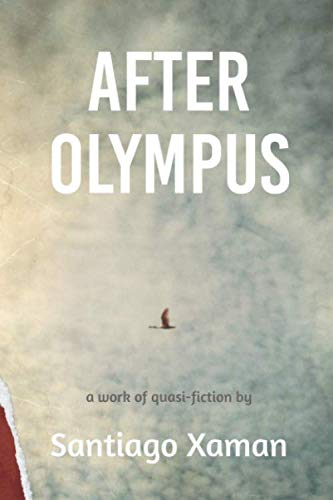
Dabbling in mysticism, quasi-fiction, conspiracy theories, shadowy geopolitics and a healthy dose of mystery, After Olympus by author Santiago Xaman spans a broad and bizarre gamut of genres, making this an undeniably unique read in an age of carbon-copy thrillers.
The book is largely told directly from the mind of the apparent author, Santiago Xaman, with the novel presented as unearthed journal entries and scraps of memory. A screed of truth from a time in the past, these pages bear a secret that stretches from the 1960s to the modern day and beyond.
A downed Soviet spycraft bearing three mysterious playing cards launches a group of young men into a quest that lasts decades, but that is far from the full scope of the story. Santiago Xaman, one of the men, also believes in a power that transcends the world of man, one that he has been predestined to hold, and his ascension is somehow linked to the mythical mountain of Olympus.
If that summary hasn’t made your brain struggle, then you may be ready to tackle the book itself, which is a patchwork of puzzles and deeper meanings that would make Mark Z. Danielewski sit up and take notice. There are existential crises and profound revelations swept up along with a rapidly flowing plot and a varying format of narration that keeps readers on their toes. Through an assortment of club meeting notes, exchanges of dialogue framed like screenplays, and journal entries that veer into sermons, the author builds this story piece by eccentric piece. Xaman displays a brilliant level of draughtsmanship, while also patiently doling out the web of this story like a delicate piece of fishing line.
There are moments in the narrative that are reminiscent of Pirsig, deconstructing a single moment into a philosophical diatribe, while other passages remind one of Gabriel Garcia Marquez, when the banality of a conversation or moment is heightened by linguistic panache and vibrant metaphors that expand for pages. These more aesthetic moments in the writing are balanced well with action and rapid-fire plot developments, forcing readers to draw their own conclusions and fully invest in the story. Though the plot requires close attention, and Xaman never spoon-feeds the reader, it is possible to enjoy the narrative on its creativity and originality alone.
Balancing between the real world and a futuristic realm of mysticism and unbelievable technology is not an easy task, but this enthralling novel cleverly dances on the head of a pin. The fluctuating formatting is typically easy to follow, and there are very few sections of dialogue that don’t move the story forward. The form of writing is difficult to classify, which also makes it hard to critique; it takes a bold and playful swing at contemporary fiction, and keeps the readers turning pages, so by that measure, it’s an extraordinary success.
By expanding the boundaries of what we conceive to be literature, After Olympus strengthens its own message: that there are still many things human beings have yet to understand.
Book Links
STAR RATING
Design
Content
Editing
Get an Editorial Review | Get Amazon Sales & Reviews | Get Edited | Get Beta Readers | Enter the SPR Book Awards | Other Marketing Services






















Leave A Comment